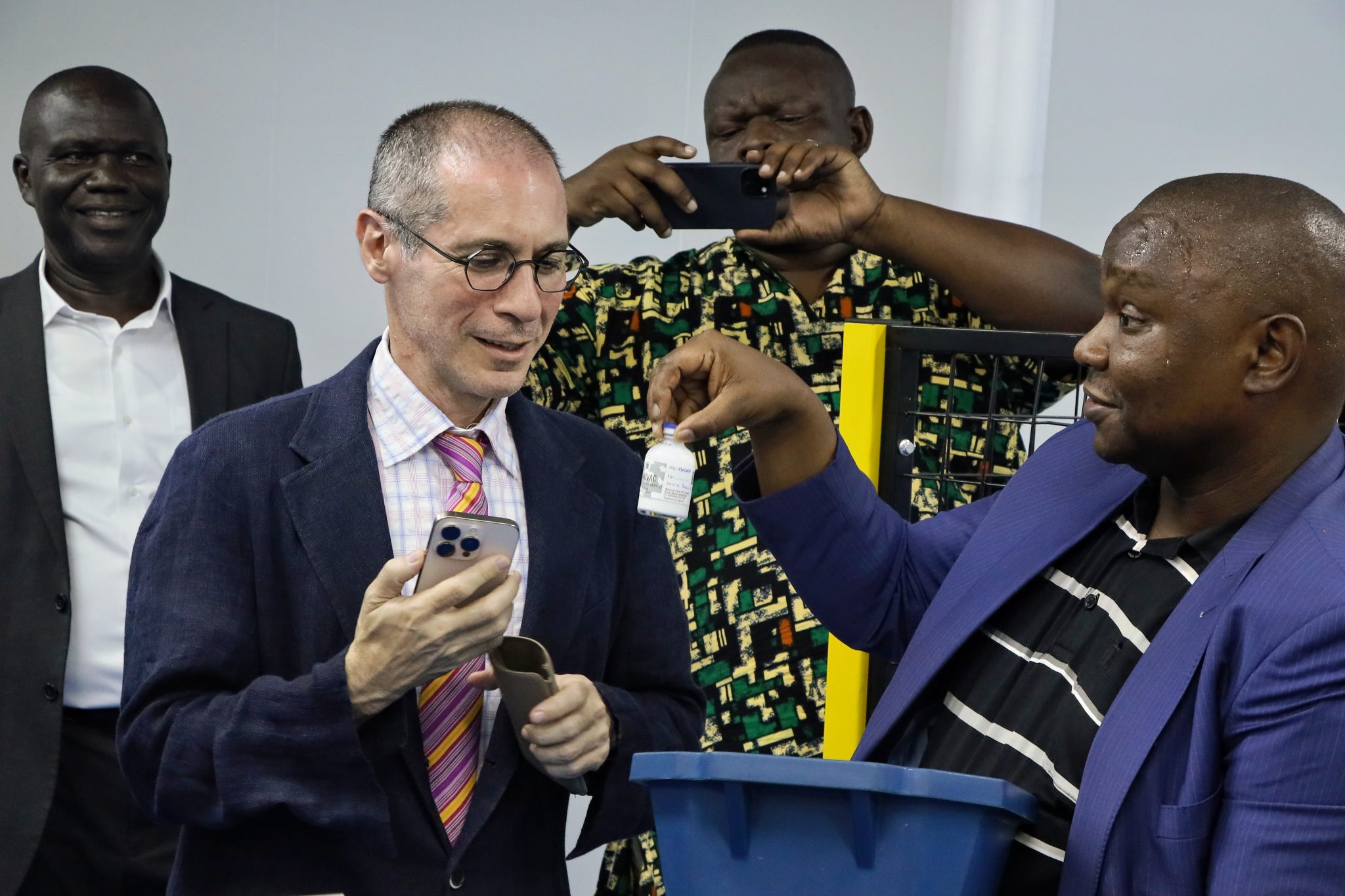The World Bank Regional Director for Eastern and Southern Africa, Mr. Daniel Dulitzky, has commended the National Agricultural Research Organisation (NARO) for its groundbreaking innovations in animal health, particularly the Anti-Tick Vaccine, which he said elevates NARO into a flagship entity in innovation.
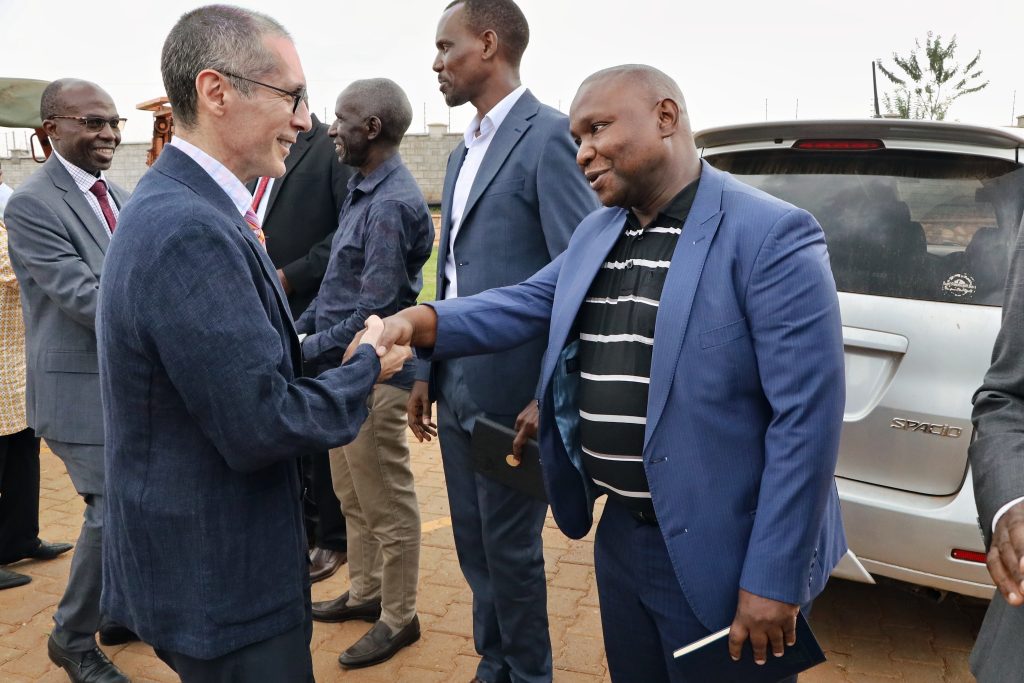
Speaking during a visit to the vaccine production facility at the National Livestock Resources Research Institute (NaLIRRI) at Nakyesasa in Wakiso district last Thursday, Mr. Daniel expressed admiration for the progress Uganda has made in developing homegrown agricultural solutions.
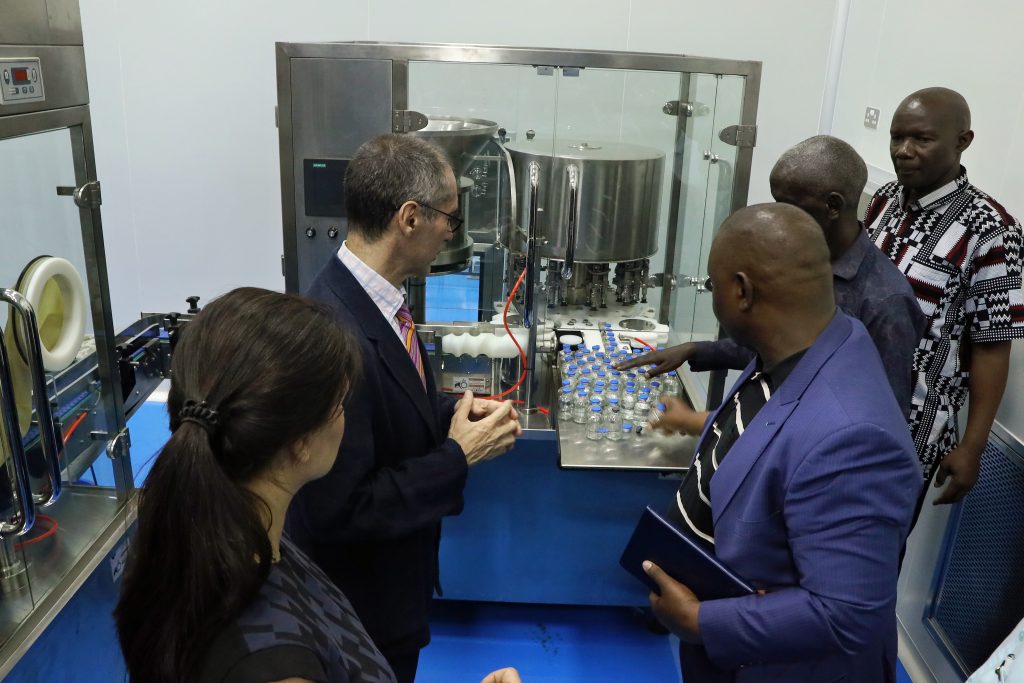
“For us, this is a true Centre of Excellence and our partnership is very meaningful. NARO is a flagship institution,” he said. “The idea of African solutions to African problems is essential, and today we have witnessed a solution relevant not only to Uganda but the entire continent.”
He highlighted the economic impact of the Anti-Tick Vaccine, noting that Uganda loses USD 1.1 billion annually to tick-borne diseases. The new facility’s production capacity of 60 million doses a year, at USD 1 per dose, represents a massive cost-saving for farmers, estimated at USD 49 saved per cow per year.
“I am not Ugandan, but I feel proud anyway,” he said, drawing from his background as a cattle keeper in Argentina. “On behalf of my team, we leave very impressed with what we have seen.”
He emphasized the World Bank’s desire to deepen collaboration and continue supporting impactful innovations.
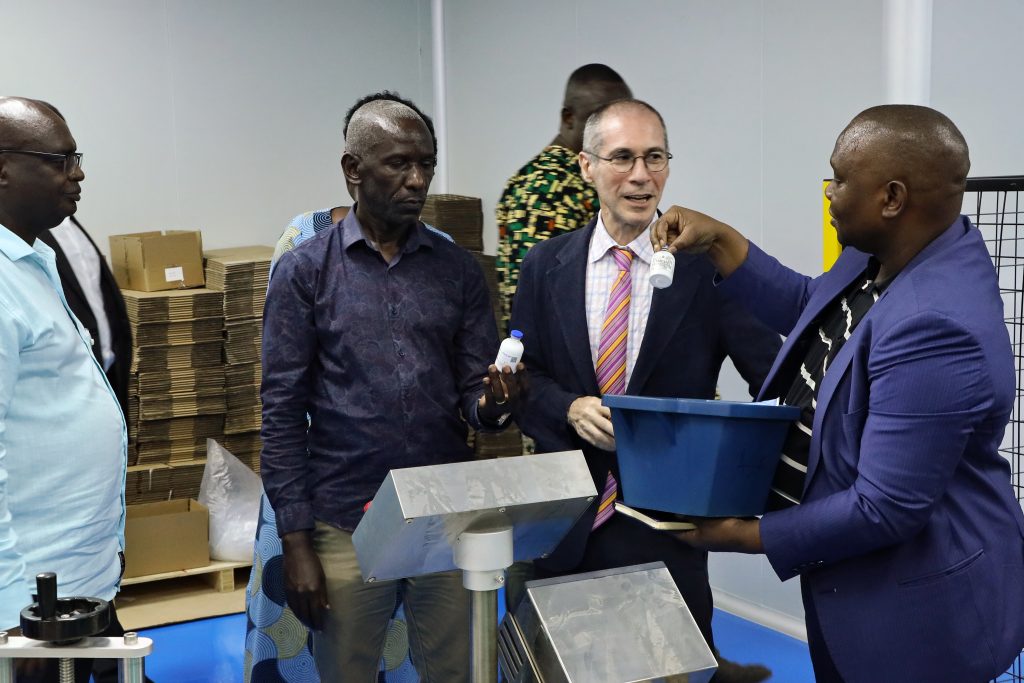
The NARO Director General, Dr. Yona Baguma, applauded the World Bank for its long-standing support that has enabled Uganda to establish multiple Centres of Excellence, including the Cassava Centre of Excellence.
“With the support of the World Bank, we have been able to build a strong foundation for high-impact agricultural research,” Dr. Baguma said. “NARO has now emerged as a competitive entity and a strategic leader on the continent, delivering solutions that impact livelihoods beyond Uganda.”
He shared NARO’s ambition to scale the current vaccine capacity into a fully-fledged regional hub for vaccines, pharmaceuticals, and biologicals.
“We want to expand capacity to benefit the entire continent and the world by developing human capital, strengthening infrastructure, and producing products that transform livestock and human health,” he added.
Dr. Baguma also revealed NARO’s plan to transform the Cassava Centre of Excellence into an integrated African cassava value chain, from production to industrial value addition, aimed at boosting food security, industry, and rural incomes.
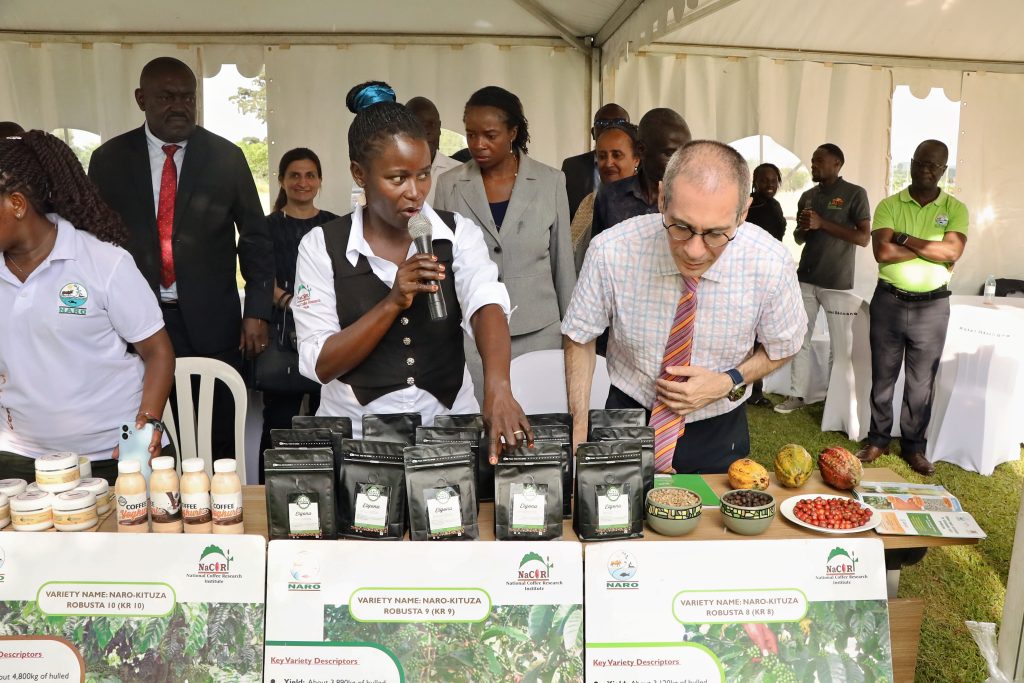
Speaking on behalf of the NARO Governing Council, Mr. Kenneth Katungisa, who is also a cattle farmer, underscored the urgency of the Anti-Tick Vaccine.
“The demand for this vaccine, even before mass production begins, is enormous,” he stressed. He warned of desperate measures farmers have resorted to, including mixing acaricides with pesticides, resulting in blindness in half of some herds.
He noted that current acaricide spraying costs exceed USD 50 per week, yet the chemicals no longer work effectively.
Representing the Minister for Agriculture, Commissioner Dr. Paul Mwambu emphasised the heavy financial burden Uganda bears in importing vaccines and other disease-control inputs. The Anti-Tick Vaccine, he said, demonstrates that Uganda can produce its own solutions affordably and efficiently. He expressed optimism that with continued investment and coordinated planning, the country can expand to producing additional vaccine lines.
Dr. Mwambu emphasised the need to strengthen research, extension, and innovation systems, while also calling for increased investment in irrigation, storage, and rural road infrastructure to unlock productivity. He highlighted the importance of digital transformation in agriculture, particularly through digital platforms for advisory services, market access, and financial inclusion. He also pointed to climate resilience, insurance schemes, and training of young scientists and agripreneurs as key areas that require committed funding and collaboration.
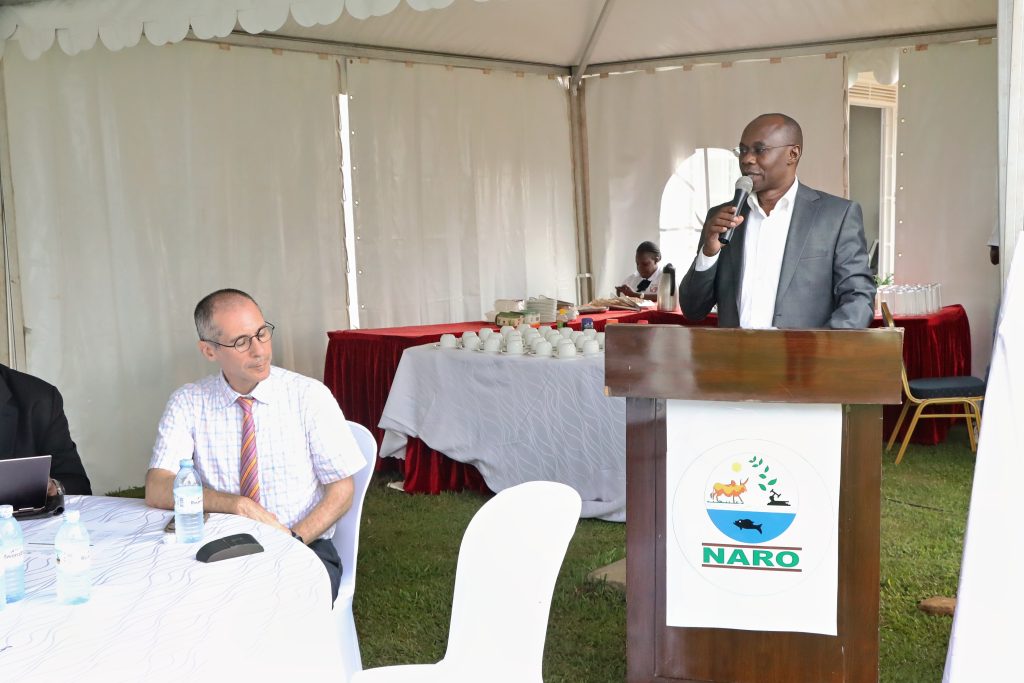
The Commissioner Extension Services and Skilling, Dr. Henry Opolot Nakalet, who represented the Permanent Secretary of MAAIF, underscored the importance of adopting a value chain approach in implementing agricultural projects. He observed that Uganda’s agricultural interventions have often suffered when investments are made in isolated segments, such as focusing solely on production, while ignoring equally critical components like processing, market development, storage, extension, and financing. Such fragmented approaches, he noted, limit the success and sustainability of even the most promising initiatives.
Dr. Nakalet explained that under Uganda’s new National Development Plan, agro-industrialisation remains a top priority, but achieving it requires coordinated investment along entire value chains. He added that what the delegation witnessed at NARO, the convergence of research, innovation, infrastructure, farmer needs, and policy direction, reflects the type of integrated effort that must be replicated across the agricultural sector. He praised NARO for its exemplary work and noted that strong collaboration between government agencies, research institutions, and development partners is essential to delivering meaningful transformation.
From the livestock improvement front, Dr. Katali Benda of the National Animal Genetic Resources Centre and Databank (NAGRIC & DB) elaborated on efforts to strengthen the country’s animal genetics system. He noted that NAGRIC & DB had trained more than 4,500 Artificial Insemination (AI) technicians since 2001, expanding training from the traditional livestock regions of central and western Uganda to areas such as Karamoja, Teso and West Nile. He, however, pointed out that challenges remain, including inadequate numbers of skilled technicians, unethical practices by some service providers, and limited farmer sensitisation on how to prepare animals for insemination. These gaps, he said, underscore the need for sustained investment in the animal seeds pathway to ensure farmers have access to high-quality and reliable genetic resources.
For Media Enquiries Contact:
Frank Mugabi
Senior Communications Officer
NARO
Plot 11-13 Lugard Avenue, | P.O Box 295, Entebbe | 0414 320341/2
Website: www.naro.go.ug | X: @ narouganda

